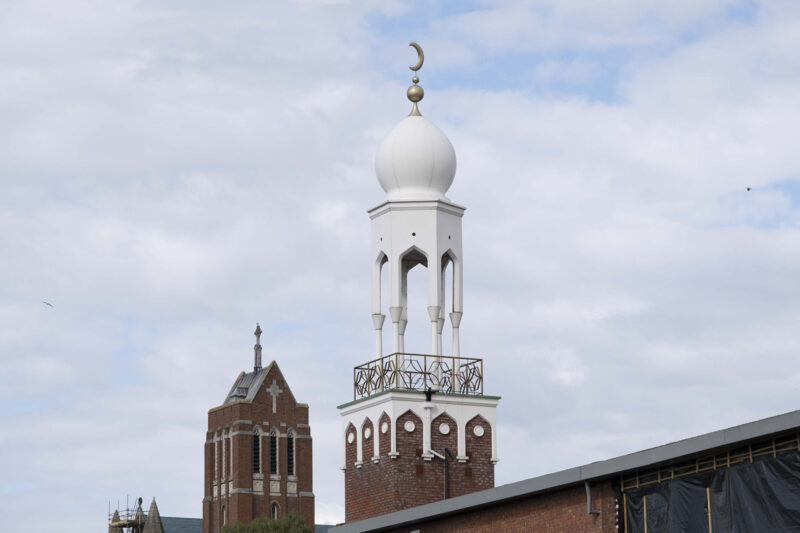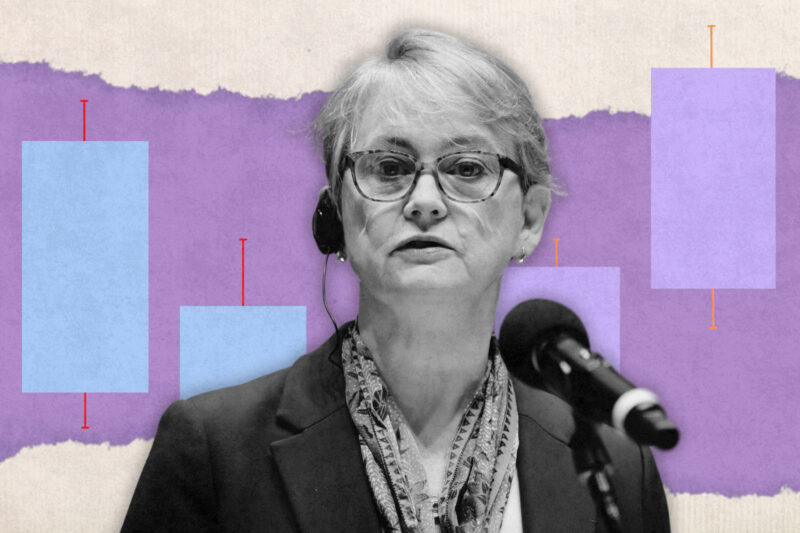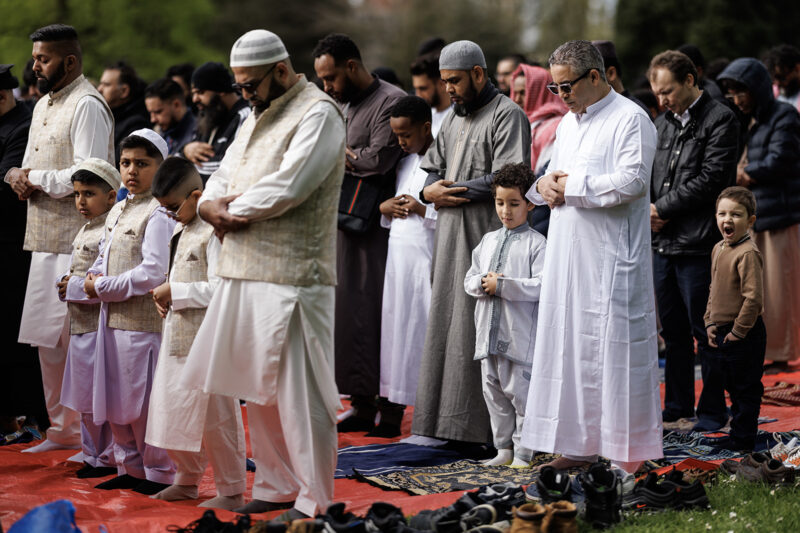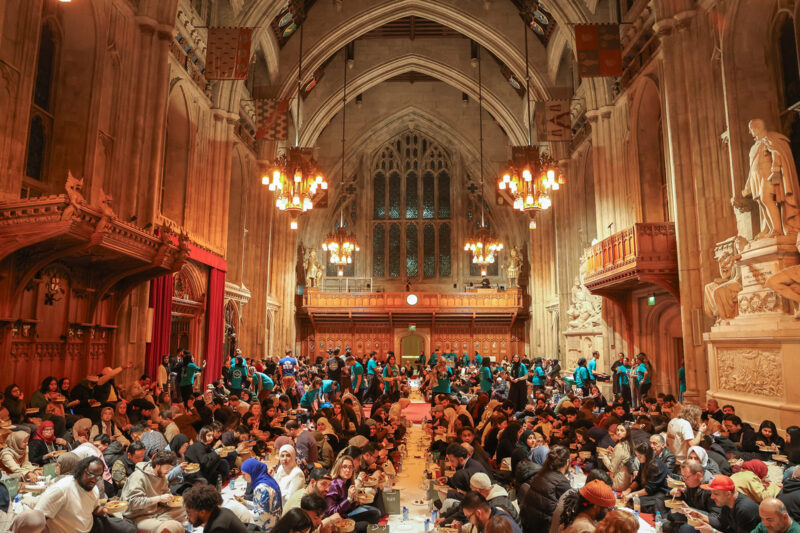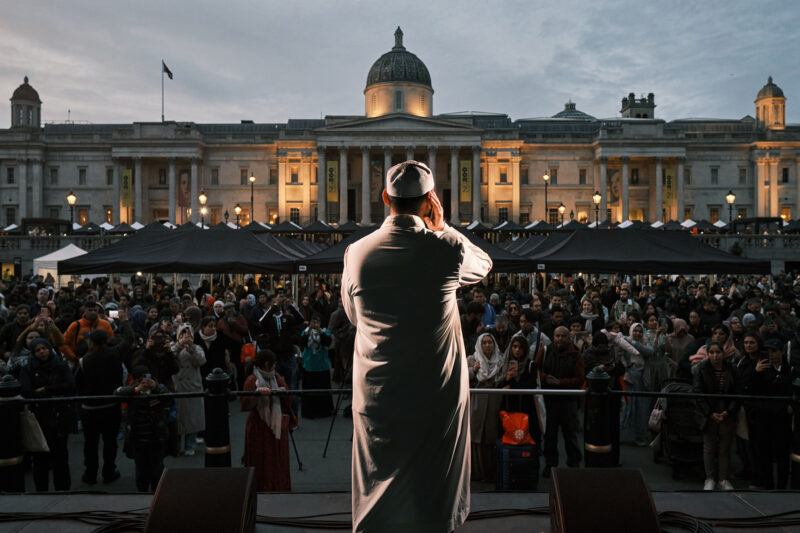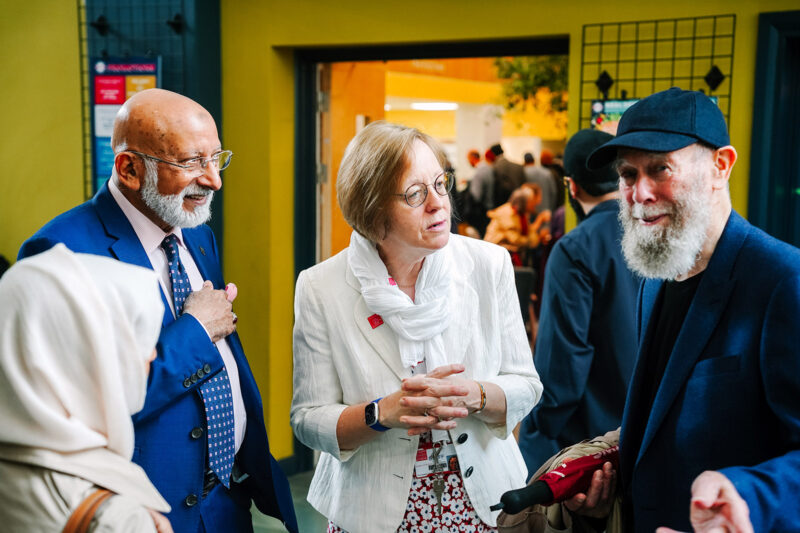Young, optimistic and devout — Gen Z Muslims in the UK
Muslims aged between 16 and 24 are buoyant about their economic and social futures, but Islamophobia is a persistent problem
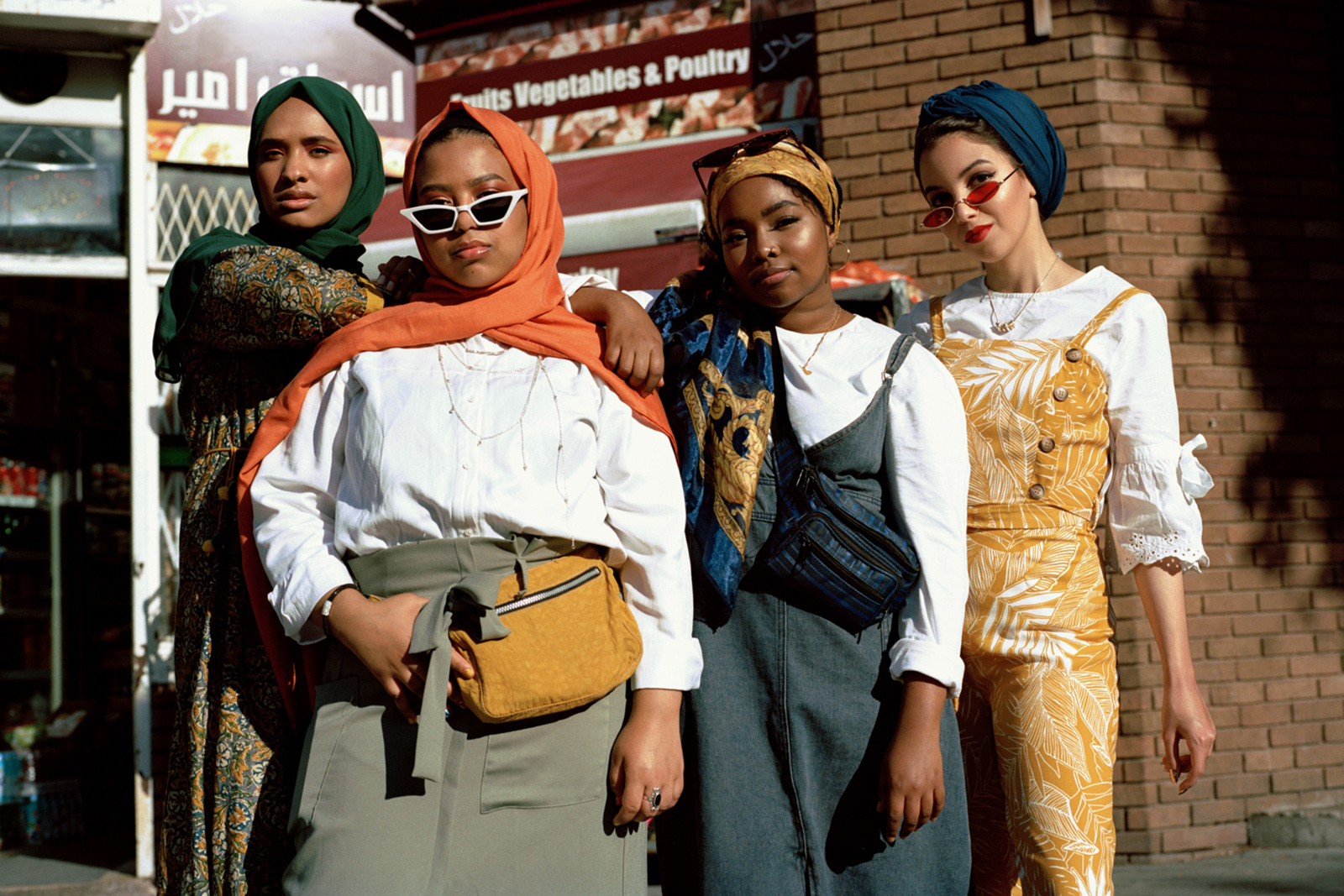
Burdened with personal debt, but bullish about their economic outlook and society’s ability to tackle the effects of climate change, Gen Z Muslims in the UK share almost identical worldviews and experiences to their non-Muslim compatriots’. However, as an exclusive Hyphen poll reveals, they diverge sharply on issues of personal religiosity.
Young UK Muslims and their non-Muslim peers share very similar levels of personal debt. Half (52%) of Gen Z Muslims have some form of it. A roughly equal amount owe less than £10,000 (25%) and between £10,001 and £50,000 (24%) — figures consistent with non-Muslim respondents’.
These findings are from an exclusive poll commissioned in February by Hyphen in conjunction with Savanta. A total of 2,073 young people aged 16-24 in the UK were interviewed — 1,002 were Muslims, making it one of the largest surveys of its kind.
Contrary to existing research characterising Gen Zs as largely depressed by the prospect of a gloomy economic future, both Muslim and non-Muslim Gen Zs rate their financial situation as “secure” (59% Muslim v 58% non-Muslim), meaning that they have sufficient money to save, invest or spend on non-essential items.
The same confidence can be seen among all Gen Zs when asked about the likelihood that they will become property owners by the time they turn 30. Of those who do not currently own a home, two-thirds (66% Muslim v 63% nationally) say they are confident that they will own a property by that age.
“I would say Gen Z Muslims are as aspirational as non-Muslims, despite the discrimination and setbacks that they might be facing in society,” said Dr Sadek Hamid, research fellow for the Digital British Islam project, based at the University of Wales Trinity Saint David. “They are ambitious, they realise that they have social disadvantages, but that is not going to hold them back — they want to succeed. They see themselves in the next five to 10 years as being in a much stronger economic financial position and homeowners.”
On matters of faith, the poll has found clear differences between Muslims and non-Muslims. Young UK Muslims are significantly more religious than their non-Muslim contemporaries. Of those polled, 89% of Muslims say they pray at home at least sometimes or often, and 68% say they sometimes visit a mosque. More than 60% of non-Muslim Gen Zs state that they rarely or never pray at home or visit a place of worship.
The findings on faith underpin data released earlier this year from the 2021 Census, which revealed that more people under 40 in England and Wales now declare “no religion” than those who profess to be Christian. Census data also shows that more than 50% of twentysomethings are not religious, compared with less than 37% a decade earlier.
This is in contrast with other religious findings across the UK. The overall population of England and Wales grew by 3.52 million in the decade 2011-21 and the number of UK Muslims rose by 1.16 million — 33% of the increase. Followers of Islam also have the youngest age profile in the 2021 Census: 27 on average, compared to 32 for people with “no religion”.
Among Gen Z Muslims, there also appears to be a shift away from relying only on local religious leaders for spiritual advice and towards seeking guidance online. Almost half (46%) say they go to a religious leader for spiritual advice at least sometimes. A larger proportion (71%), however, say they sometimes or often turn to social media.
“This is a trend that was around pre-Covid-19, but I think the pandemic definitely accelerated it, “ said Dr Khadijah Elshayyal, an associate fellow at the Alwaleed Centre at the University of Edinburgh specialising in British Muslim identity politics and representation.
“I think it speaks to the times we live in. Convenience plays a big role in the decisions people make about where they go online to find the information they need. We do everything else online, like paying bills or using smartphones for picking up YouTube tutorials to fix stuff around the house. So why would we not do the same for spiritual guidance?”
The Hyphen poll also reveals that the cost of living crisis is disproportionately affecting Gen Z Muslims. Just over half (53%) said they have provided financial support to their parents in these past 12 months, compared with 43% of non-Muslims.
Hamid believes that the level of financial support provided to older generations by young Muslims speaks to the enduring importance of multigenerational family structures.
“That’s one positive feature, relatively speaking — our value systems are largely intact, although that’s changing,” he said. “The idea of traditional values are family values and the idea of family support, both for parents and children, is revealed here.”
When it comes to the climate crisis, just under half of young people (49% Muslim v 44% non-Muslims) say they are “very” or “quite optimistic” about society’s ability to tackle climate change.
The issue of Islamophobia continues to be a persistent problem for younger people. Around half of Gen Z Muslims say they have experienced discrimination in education (49%) or social settings (47%). A slightly lower proportion (44%) of those in employment say they have experienced Islamophobia in the workplace.
Another question asked was whether employers should give time off to Muslims to celebrate Eid. The vast majority of young Muslims (87%) agreed that employers should and (62%) of non-Muslims surveyed concurred.
• Read more on Hyphen’s exclusive Gen Z poll
 Newsletter
Newsletter





